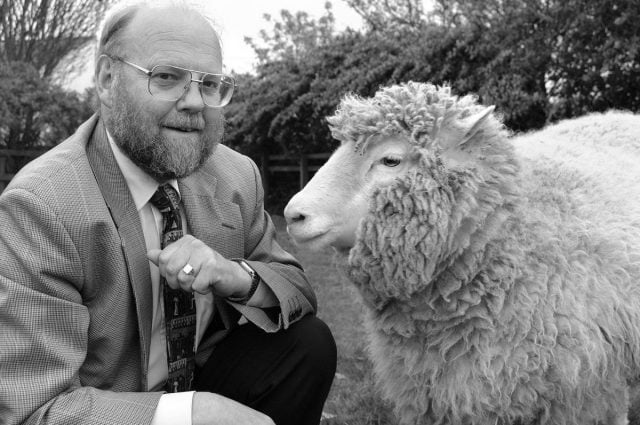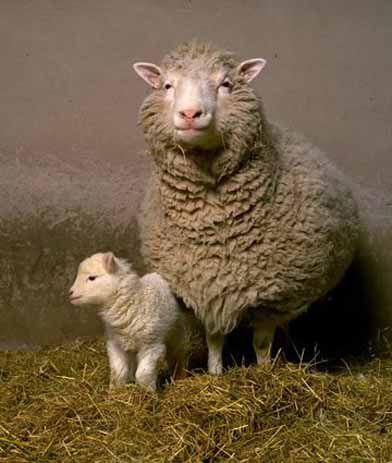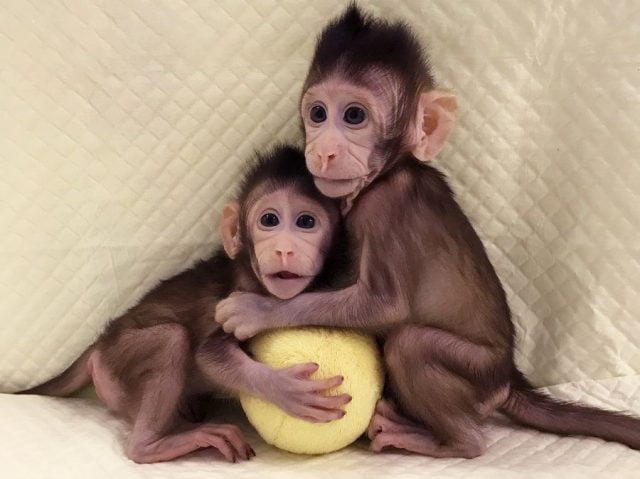Back in Time is ED’s newspaper-like column that reports an incident from the past as though it has happened just yesterday. It allows the reader to re-live it several years later, on the date it had occurred.
February 22, 1997: The Roslin Institute in Scotland has announced the birth of the world’s first successfully cloned mammal – Dolly the sheep. Researchers are celebrating it as one of the biggest breakthroughs in the world of Science, though it is bound to incite controversy.
Dolly was born on 5 July 1996 but her arrival was kept hidden because of the patent application on the cloning process that produced her. She was the first mammal to be successfully cloned from an adult cell. Previous cloning experiments had been on embryo cells.

Dolly was cloned by removing the nucleus from a mammary gland cell of the donor sheep. This nucleus was inserted in the place of the nucleus of the egg cell provided by her surrogate mother. The developed egg cell was then implanted into the uterus of the surrogate mother.
DNA tests revealed that Dolly is a successful clone because she is the identical twin of the long-dead donor sheep and she is genetically unrelated to her surrogate mother.
Her birth was proof that specialised cells could be utilized to create exact copies of the animals they come from. It is making people more optimistic about the possible replacement of cells in human beings using of stem cells.
Dr. Ian Wilmut, an embryologist from the Roslin Institute, said: “It will enable us to study genetic diseases for which there is presently no cure and track down the mechanisms that are involved.”
At the same time, this success story has given rise to fears that human-cloning is not far behind.
Read More: The Harsh Reality Of Zoos: Animals Suffering From Depression (Images)
Post-scriptum: Dolly enjoyed the life of a celebrity and lived a healthy life until the age of 6. She found her way into school Science textbooks across the world and still remains as a celebrated figure. She gave birth to a total of 6 lambs over the years by natural means with a Welsh Mountain ram named David.

In 2003, she was diagnosed with tumours growing in her lungs. As the infection progressed and her suffering increased, it was collectively decided to euthanize her. Dolly was put to sleep on 14 February 2003.
Since the announcement of Dolly’s birth, several other successful cases of mammal-cloning have been reported, including dogs, horses, and grey wolves. Just last month, a team of Chinese researchers successfully cloned a pair of macaque monkeys. It marks the first time in history that primates have been cloned in this manner.

Just as in the case of Dolly, the discovery will stir up debate (with even more reason this time around) over the cloning of yet another primate species – humans.
The cloning of animals in itself is a controversial topic because the cloning process is still in its experimental stages and often results in miscarriages and isolation that can be traumatic for the animals. Many animal rights activists protest against this unjust treatment of animals as commodities.
Apart from religious objections, there are many ethical objections to the cloning of human beings as there is a likelihood that cloned individuals would be biologically damaged, owing to the unreliability of cloning technology.
Image Credits: Google Images
Sources: Roslin.ed.ac., NY Times, National Geographic
Recommendations For You:
http://edtimes.in/2018/02/are-you-brave-enough-to-listen-to-the-hungarian-suicide-song/
http://edtimes.in/2017/12/25-years-ago-today-babri-masjid-was-demolished-by-vhp-rss-bjp-kar-sevaks-with-swords-hammers/































You guys must also check out Chicha’s and Dawat-E-Hyderabad. Excellent Fantabulous Biryani. Fanoos is trailing them but Chicha’s is simply outstanding.